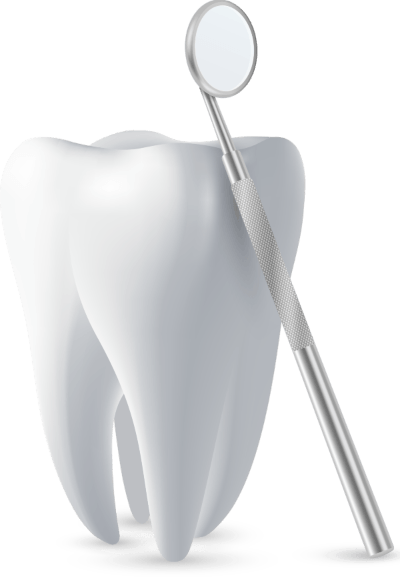Preventive Dental Care In Dallas
What Is Preventive Dental Care?
Preventive dental care lays the groundwork for a healthy, beautiful smile. Proper at-home hygiene practices (like twice-daily brushing and flossing at least once a day), attending regular cleanings and oral exams, and wearing protective mouthguards (when necessary) can help keep your teeth and gums healthy and free from decay, damage, and other dental health issues. At Lakewood Dental Studio,
Dr. Leisa Robotham utilizes routine checkups as an opportunity to track your wellness and address any minor problems with your oral health before they become major ones.


Did You Know…
Oral health is a cornerstone of overall well-being, and the state of your gums can directly impact the health of the rest of the body.
READY FOR YOUR APPOINTMENT?
What To Expect At Your Preventive Dental Care Appointment
-
Professional Cleaning
ButtonTo start things off, we'll completely clean your teeth and gums, using special tools to remove any plaque and tartar that may have built up along the gum line. Essential aspects of your cleaning include thorough flossing between your teeth in all those hard-to-reach places and scraping off the plaque that has accumulated along the gum line. To finish the cleaning process, we'll polish your teeth, leaving you feeling refreshed, revitalized, and ready to smile.
-
Any Necessary X-Rays
ButtonIf you’re new to the office or haven’t had dental x-rays in a while, your dentist may recommend that you take some during your preventive care appointment. Dental x-rays let us see what’s going on beneath the surface of your smile, giving us the ability to find issues that may not be visible otherwise. With x-rays, we’re able to make more accurate diagnoses and create more effective and efficient treatment plans.
-
Comprehensive Exam
ButtonYour dentist will review your x-rays and then take a thorough look at your teeth, gums, and the rest of your mouth. If we spot any issues, we’ll take the time to educate you on our findings, so you can keep your dental health on the right track. We make it our goal to keep you educated about your oral wellbeing, so you can make the right decisions for your smile.
-
Personalized Treatment Plan
ButtonUsing the information we’ve gathered with your exam and x-rays, we’ll work together with you to craft a treatment plan customized for your unique oral health needs, budget, and lifestyle. If everything looks good, we’ll simply schedule your next routine cleaning and checkup.
-
Schedule Follow Up Appointment
ButtonOur team is here for you! No matter what kind of treatment you schedule, our team is standing by to answer any questions you may have about insurance, financing, or anything else. We’ll do everything possible to make sure your every visit is straightforward and stress-free.
-
Professional Cleaning
ButtonTo start things off, we’ll perform a complete cleaning of your teeth and gums, using special tools to remove any plaque and tartar that may have built up along the gumline. Essential aspects of your cleaning will include thorough flossing between your teeth in all those hard-to-reach places, and scraping off plaque that has accumulated along the gum line. To finish the cleaning process, we’ll polish your teeth, leaving you feeling refreshed, revitalized, and ready to smile.
-
Any Necessary X-Rays
ButtonIf you’re new to the office or haven’t had dental x-rays in a while, your dentist may recommend that you take some during your preventive care appointment. Dental x-rays let us see what’s going on beneath the surface of your smile, giving us the ability to find issues that may not be visible otherwise. With x-rays, we’re able to make more accurate diagnoses and create more effective and efficient treatment plans.
-
Comprehensive Exam
ButtonYour dentist will review your x-rays and then take a thorough look at your teeth, gums, and the rest of your mouth. If we spot any issues, we’ll take the time to educate you on our findings, so you can keep your dental health on the right track. We make it our goal to keep you educated about your oral wellbeing, so you can make the right decisions for your smile.
-
Personalized Treatment Plan
ButtonUsing the information we’ve gathered with your exam and x-rays, we’ll work together with you to craft a treatment plan customized for your unique oral health needs, budget, and lifestyle. If everything looks good, we’ll simply schedule your next routine cleaning and checkup.
-
Schedule Follow Up Appointment
ButtonOur team is here for you! No matter what kind of treatment you schedule, our team is standing by to answer any questions you may have about insurance, financing, or anything else. We’ll do everything possible to make sure your every visit is straightforward and stress-free.
Types of Preventative Dental Services
DENTAL CLEANING & HYGIENE
A healthy smile can make a huge difference in anyone's life, so we recommend keeping up with regular teeth cleanings! Our dental hygienists attend your appointment every six months to ensure plaque, bacteria, or minor stains don't stand a chance. Trust us to help keep your grin looking strong & beautiful for many years.
DIGITAL X-RAYS
Regarding your dental health, comfort and safety are our top priorities. With digital x-rays, Dr. Robotham can accurately diagnose with minimal radiation exposure. Typically, we recommend one or two sets of complete x-ray imaging annually. However, certain circumstances (like a dental emergency) can require x-rays.
FLUORIDE TREATMENTS
Keeping your mouth healthy is simple with fluoride treatment. When this powerful mineral is applied directly to teeth, it attracts calcium and phosphates to re-strengthen teeth to fight off decay!
PERIODONTAL CARE
Did you know that gum disease is surprisingly prevalent? The scary truth is, if left unchecked, it can lead to all sorts of nasty consequences – from bleeding gums to teeth falling out! Not exactly pleasant, so make sure and consult your doctor at the first sign.
ORAL CANCER SCREENINGS
At your next preventive care appointment, let us give you peace of mind with a comprehensive mouth cancer screening. Early detection is critical for controlling this severe health condition and could save your life!
NIGHT GUARDS & TMJ TREATMENT
Do you wake up in the morning with a sore jaw? You could suffer from bruxism, that pesky habit of unconsciously grinding and clenching your teeth at night. Fortunately, night guards are an easy fix. Night guards provide a protective barrier between your teeth to prevent further damage caused by this nocturnal activity.
SPORT GUARDS
Protect your smile and play with confidence! Sports mouthguards are the perfect way to shield yourself from inevitable oral trauma associated with high-impact sports. We can create a custom athletic mouth guard so your precious teeth will be safe even if those face or head collisions occur.

Did You Know…
Dental enamel (the surface of the teeth) is the hardest part of the body.
INTERESTED IN PREVENTIVE SERVICES?
Have Questions About Preventive Dentistry? Find Answers Here.
-
How Should I Properly Brush My Teeth?
Good brushing habits are integral to your oral health, and using the proper technique can help keep your mouth free from decay. Brush your teeth at least twice a day for two minutes at a time. Hold your brush at a 45-degree angle and use small, circular strokes to clean each tooth's front, back, and chewing surfaces. You should spend about 30 seconds on each quadrant of your mouth. Use toothpaste that is ADA-approved and rich in fluoride, and don't forget to replace your toothbrush or electric toothbrush head every 3 to 4 months or when the bristles start to look frayed or worn.
-
How Do You Floss Correctly?
Daily flossing is the best way to dislodge plaque and bacteria to keep gum disease at bay, and it can be easy once you know the proper technique. Begin by gathering about 24 inches of dental floss, wrapping most of it around one index or middle finger. Wind the remaining few inches around the index finger of your other hand, keeping about one inch of floss taut between your fingers and thumbs. Gently glide the floss between your teeth. If you're having trouble getting the floss between your teeth, try not to force it, as it can slip and cause damage to your gums. Instead, use a gentle side-to-side rocking motion to get the floss where it needs to be. Once the floss is between your teeth, slide it into the gum line while following the c-shaped curve of the tooth. Repeat this process for both sides of every tooth. To help prevent the spread of bacteria, be sure to wind a new 1-inch section of floss before moving on to the next tooth.
-
What's The Difference Between Prophylactic Cleanings And Periodontal Cleanings?
Prophylactic cleanings, also known as "regular cleanings," are the cleanings you receive during your routine general dentistry appointments. They are essential in helping to prevent decay and keep your breath fresh and should be scheduled every six months. During your cleaning, we'll remove any plaque, tartar, or bacterial buildup from your teeth and floss between them to ensure the continued health of your smile.
Periodontal cleanings are only necessary for patients with periodontal (gum) disease and are sometimes called "deep cleanings." These cleaning sessions are more thorough than regular cleanings and are meant to halt the progression of gum disease. Your dentist or hygienist will carefully scrape away any plaque or tartar buildup between your teeth and gums and carefully smooth out the roots of your teeth to eliminate pockets that can trap bacteria and allow gum disease to flourish. An essential part of every periodontal maintenance routine, deep cleanings can help those suffering from gum disease to preserve their oral health.
-
Does dental insurance cover preventative care?
Most dental insurance policies cover routine preventive care like cleanings, exams, and x-rays. Even if your insurance plan does not completely cover it, chances are it is at least partially covered. Specific plans may even cover optional treatments, like dental sealants and fluoride treatments. Contact your provider for specific details about your insurance plan or call us today and find out how we can help maximize your benefits.

Did You Know…
Most people smile about 40 times a day!
READY FOR YOUR NEXT DENTAL APPOINTMENT?
WE ARE SO GLAD YOU ARE HERE
Let’s Stay In Touch!
Hours
- Monday
- Closed
- Tuesday
- -
- Wednesday
- -
- Thursday
- -
- Friday
- -
- Saturday
- Closed
- Sunday
- Closed
All Rights Reserved | Lakewood Dental Studio
Website built by Energize Group | Privacy Policy





